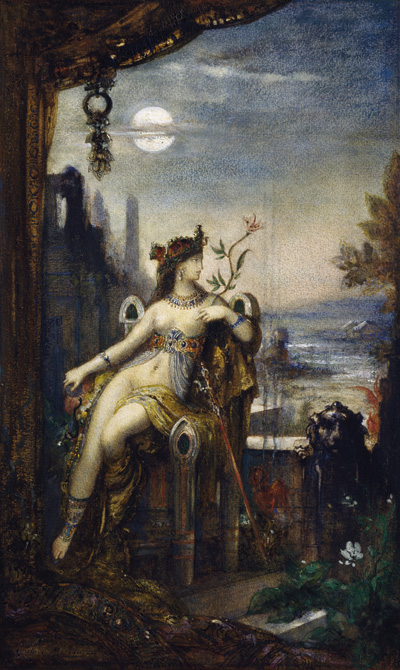This subtle, mournful book is many things. It is a diary of three weeks spent, during the tense winter before the outburst of the Arab Spring, in off-season Alexandria, where nothing comes ‘except birds to the lake, most of them when they have lost their way’. It is also a series of fragments rescued from Peter Stothard’s rich life as Essex schoolboy, Oxford student, Times editor and lifelong classicist. Another part, but only a small one, is a history of Cleopatra — and the story of Stothard’s seven previous, failed attempts to write about her.
Classical scholars, however, will recognise this book for what it really is. The poets of classical Alexandria were renowned for their mastery of the elegy, a finely wrought verse form in which meditation on a past event — typically, a death — inspired mournful reflections, praise for the dead and, perhaps, some offering of consolation. Stothard, whose last book dwelled on his diagnosis with pancreatic cancer, has here written an elegy for himself.
His only consolation seems to be memory. He watches gulls as they ‘wheel and wail’ around the space where the great lighthouse at Pharos once stood, reading this as ‘a summons to remember so much that is lost’. The loss that immediately inspires him is that of his previous Cleopatra manuscripts. A schoolboy draft is destroyed in a library fire (and this is one of many moments where you wonder how much of this book is memoir and how much is novelised). A more mature version, full of ‘too easy thoughts that were best left unsaid’, is abandoned in a desk drawer at the Times when the paper moves, overnight, to Wapping.
That story — which is of course another kind of ending — is retold here, in a partial sort of way. The deeper loss, however, is that of friends. The only female character of note is described simply as ‘V’. Stothard is not the first writer to employ that letter to signify Woman, and she seems to play the role of muse, popping up throughout his life to suggest he gets on with writing the great unwritten book on Cleopatra. It is unclear how much Stothard loves or loved V. Like Cleopatra, she remains elusive.
The other great old friend, ‘Maurice’, dies — of pancreatic cancer — the year before Stothard arrives in Alexandria. Maurice stands here for a quintessentially Alexandrian excess: this is a man who revelled, while at Oxford, in an erotic club called ‘the Red Tents’, at which boys dressed as mermaids were offered to guests. His story is mirrored by that of Lucius Munatius Plancus, who betrayed Mark Antony by going over to Octavian, despite previously having enjoyed ‘slithering about in a mermaid costume’ for Cleopatra’s delight.
It was Plancus who stopped Cleo-patra dissolving a second priceless pearl in wine at the notorious banquet of competitive excess. It was Plancus whom the poet Horace advised to ‘adapt and survive, subtly, not by changing sides any more but by changing the past’. Is this what Stothard is doing?
There are hints that this book operates as a kind of roman à clef. Caesar, at points, seems to stand in for the author. In one of the strangest of the contemporary Alexandrian scenes, Stothard is taken to meet the troubled mother of his Coptic guide, Socratis; she sings him an aria from Handel’s Giulio Cesare in the ruined Roman theatre.
Excursions in the company of Socratis and his Muslim counterpart, Mahmoud, form the framework of the book. They operate as a pair of inscrutable others, in the old tradition of writing about the East. They are often unaccountably late, or absent. There are mysterious suggestions of complicity with the Mubarak regime, and of dissent. A dreamy mood slowly drifts into nightmare as Egyptian soldiers gather outside Stothard’s hotel and Octavian’s navy simultaneously advances towards the doomed court of Antony and his queen. For Stothard himself, ‘uncertainty now seems as normal as exhaustion’ — but the book is nearing its known end.
Socratis advises Stothard, at one point, that history is a code designed ‘to disguise what we already wanted to say’. What this book says, beneath its complex layering of stories, relates chiefly to death. Take the few snippets on ancient Alexandria. We learn that the bureaucratic Alexandrian state hung pottery tags on the ‘biscuit-coloured bundles’ of its dead. We learn that obelisks were erected to bring ‘old friends up from the underworld’ with the low, red light of dawn, and take them back at dusk.
We also learn that the city’s first inhabitant was the shape-shifting god Proteus, who captured Helen and Menelaus on their way home from Troy. This Homeric scene is described as existing ‘in the borders between sleeping and waking, uppers and downers, sea and land’. The same could be said of this refined book.






Comments